Back
Web3 Dev Huddle Panel 3 Recap: Web3 Meets AI: The Future of Digital Revolution
Events
By HackQuest
Nov 22,20244 min readOn November 14, 2024, HackQuest and Gate Ventures, alongside Open Campus and KIP Protocol, hosted the second Web3 Dev Huddle: Gateway to Web3 at Gaysorn Tower, Bangkok. Panelists included Dr. Jennifer Dodgson (Co-Founder & Chief AI Officer at KIP Protocol), Shoaib (Co-Founder at Botanika), Ratish Narayanan (Director of Community Relations at Gaia), Jeff C. (Dev Rel at Open), Luki Song (Head of Ecosystem at Chainbase), and Adam Wozney (Head of Community at Akash Network, Moderator). Read on for key insights from this panel.
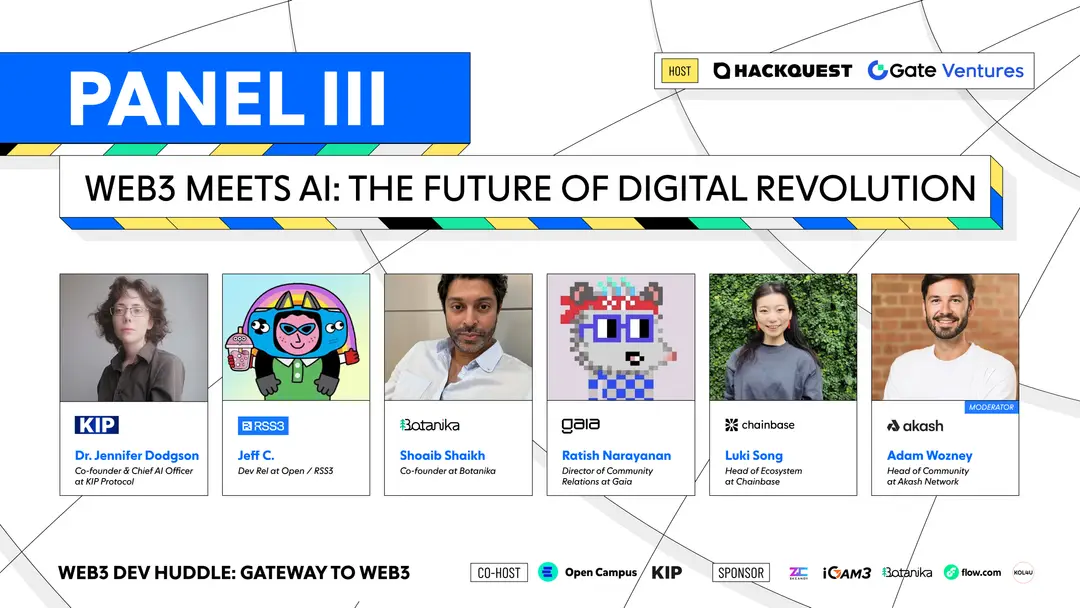
Key Takeaways
●The Convergence of Web3 and AI: Web3 can provide a decentralized framework for AI, enabling privacy, security, and more equitable resource distribution.
●Ethical Guardrails: Web3 acts as a counterbalance to AI's top-down control by providing ethical and democratic mechanisms.
●Future Applications: From decentralized data storage to autonomous agents and synthetic data, Web3 and AI's integration offers transformative use cases.
The Intersection of Web3 and AI
AI and Web3 can complement each other by combining decentralization with advanced data processing and computation, creating systems that prioritize user empowerment and transparency.
Dr. Jennifer Dodgson highlighted the challenges of regulatory capture in the AI space, saying, "In a world dominated by monopolies and government restrictions, Web3 offers a way to abstract away legal barriers, enabling genuinely free AI." She pointed out that blockchain-based payments and decentralized systems can protect AI development from centralized control.
Luki Song emphasized how Web3 infrastructure enhances security and data traceability: "Deepfakes are a serious concern, but blockchain enables us to verify authenticity, ensuring trust in AI-generated content."
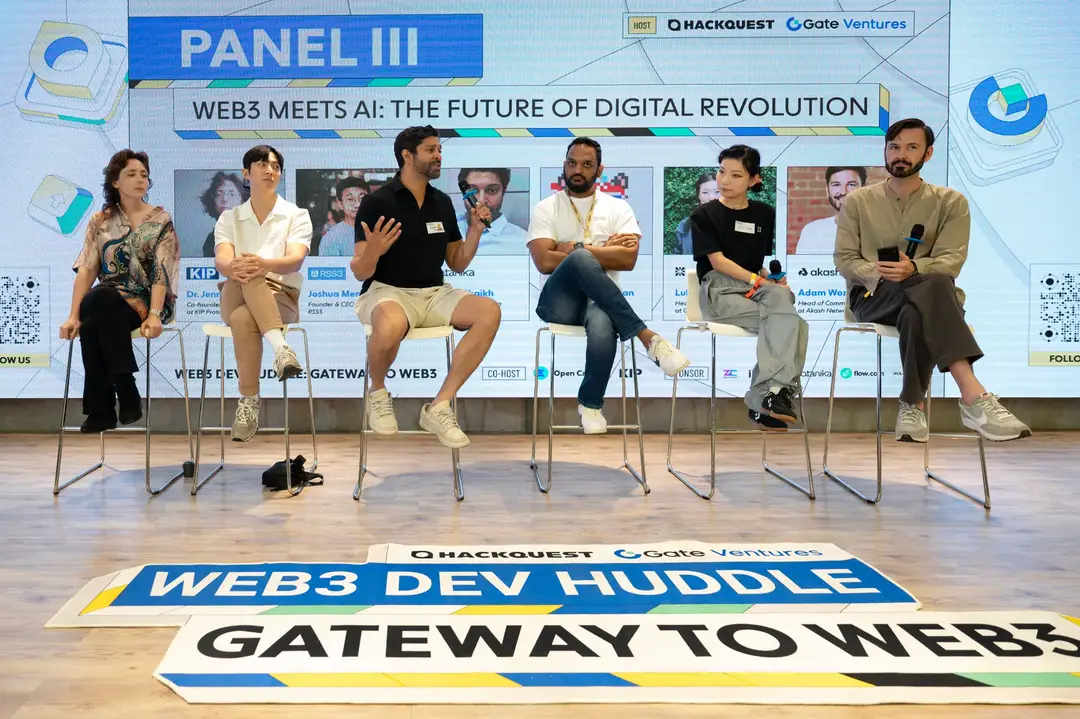
Ethics and Privacy in AI Development
The integration of Web3 introduces privacy-preserving mechanisms and community-driven governance, addressing ethical and regulatory concerns in AI development.
Ratish Narayanan elaborated on Web3’s role as an ethical guardrail, stating, "Web3 ensures equitable resource distribution and democratization, providing the ethical oversight often missing in AI development."
Building on this, Shoaib explained the importance of privacy-preserving techniques: "Dispersing information across blockchain nodes makes it almost impossible to hack. This is critical for protecting sensitive training data, especially in fields like crisis management and intelligence."
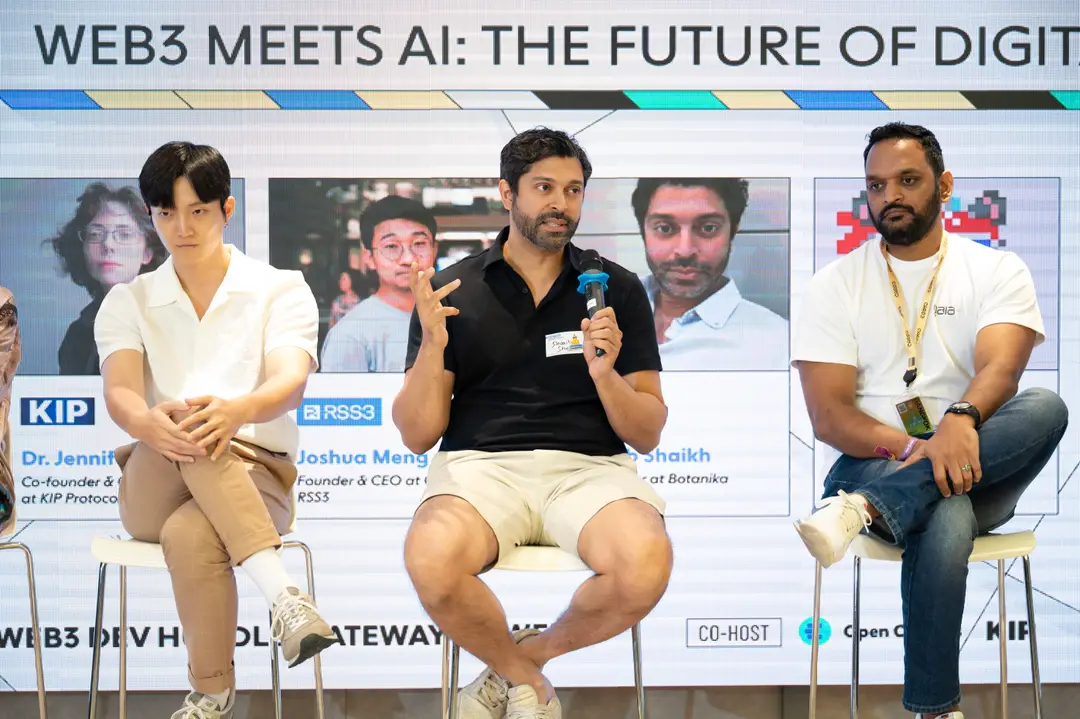
Innovative Use Cases
The panel explored various applications where Web3 and AI can complement each other, including synthetic data, autonomous agents, and decentralized storage solutions.
Shoaib Shaikh highlighted the power of synthetic data in AI training, noting, "Synthetic data allows us to anonymize sensitive information while expanding datasets for training, enabling more robust and privacy-conscious models."
Ratish Narayanan shared an ambitious project involving autonomous agents in hackathons: "We’re experimenting with fully autonomous hackathons—agents act as organizers, judges, and bounty distributors, ensuring instant rewards without human interference."
Luki Song touched on federated learning, saying, "Federated learning protects user data while enabling collaborative model training, creating a win-win for privacy and innovation."
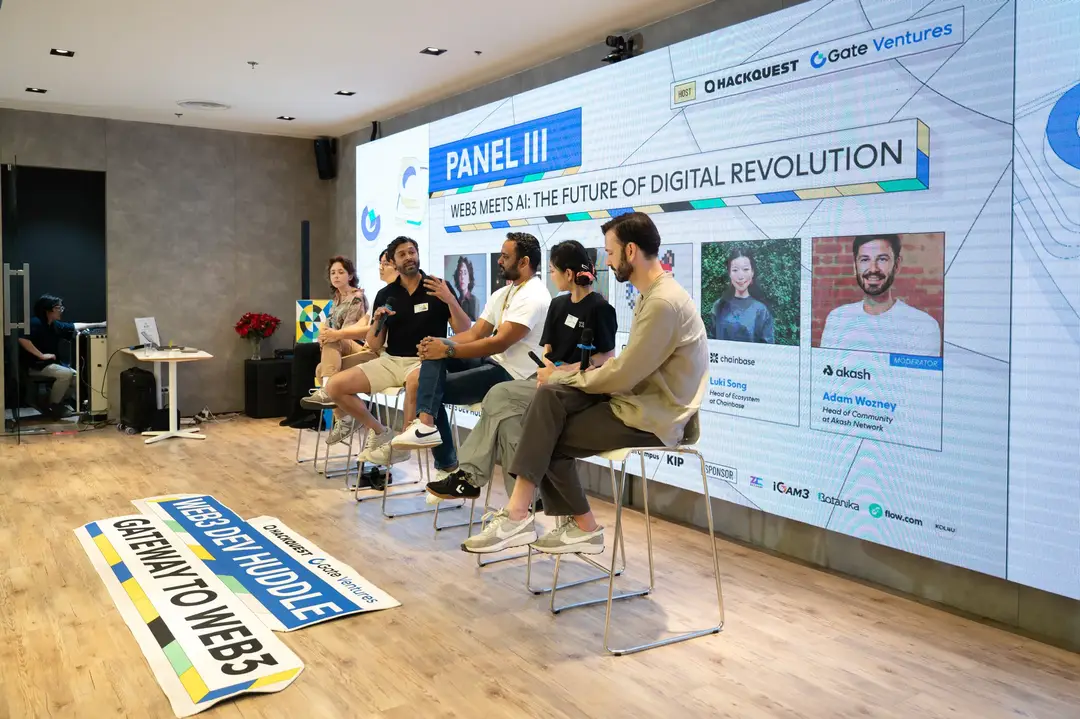
Future Outlook: Three to Five Years
The panelists shared their vision for the future of Web3 and AI, including personalized AI models, decentralized intelligence, and scalable infrastructures.
Dr. Jennifer Dodgson envisioned a future of tokenized personal AI models: "Imagine a world where your grandchildren inherit your personal AI model, preserving your knowledge and personality for future generations."
Jeff highlighted that while AI is trending, the current infrastructure lacks the bandwidth and GPU speed needed to support truly usable, everyday applications. He predicted a temporary slump in AI adoption before a surge in practical applications emerges in the next 3-5 years. “We’re riding the wave now, but like DeFi Summer in 2021, the real growth will come after a slump—when infrastructure catches up.”
Ratish Narayanan spoke about the potential for decentralized agent-based systems: "Agent-to-agent interactions could transform industries by automating transactions and decisions without human intervention."
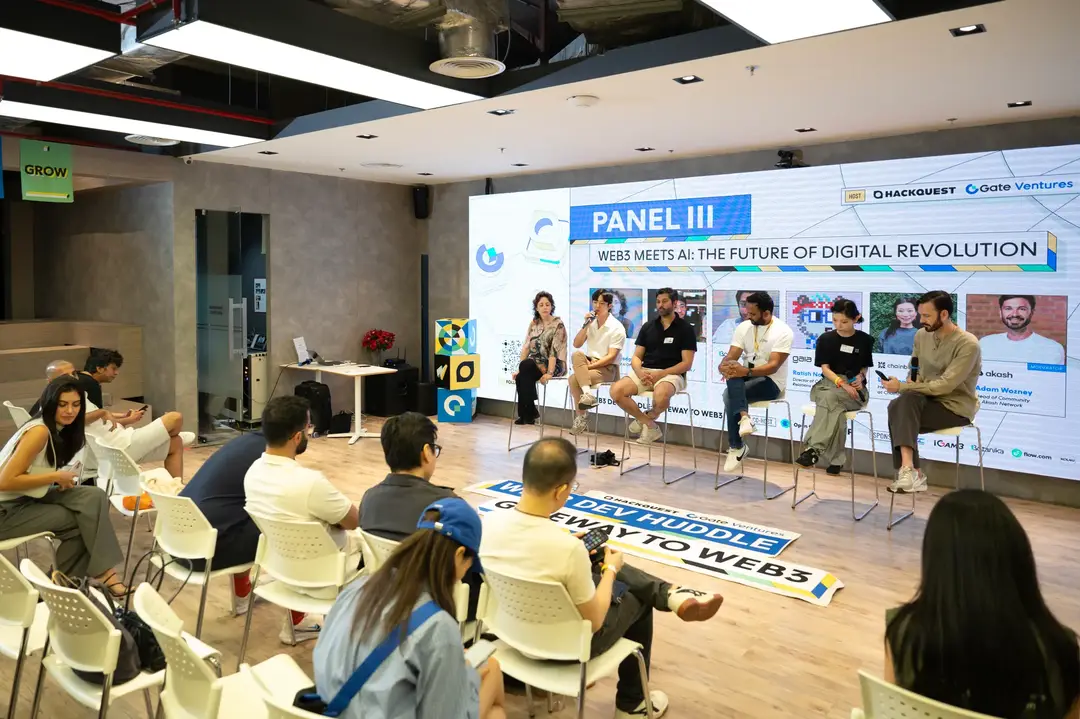
Closing Thoughts
Panel III of the Web3 Dev Huddle demonstrated how Web3 and AI can complement each other to create a more decentralized, ethical, and efficient digital future. By addressing regulatory challenges, enabling privacy-preserving innovations, and envisioning groundbreaking applications, the panelists painted an inspiring picture of what’s to come. As Dr. Jennifer Dodgson summarized, "Web3 and AI together have the potential to redefine how technology serves humanity—making it more ethical, transparent, and inclusive."